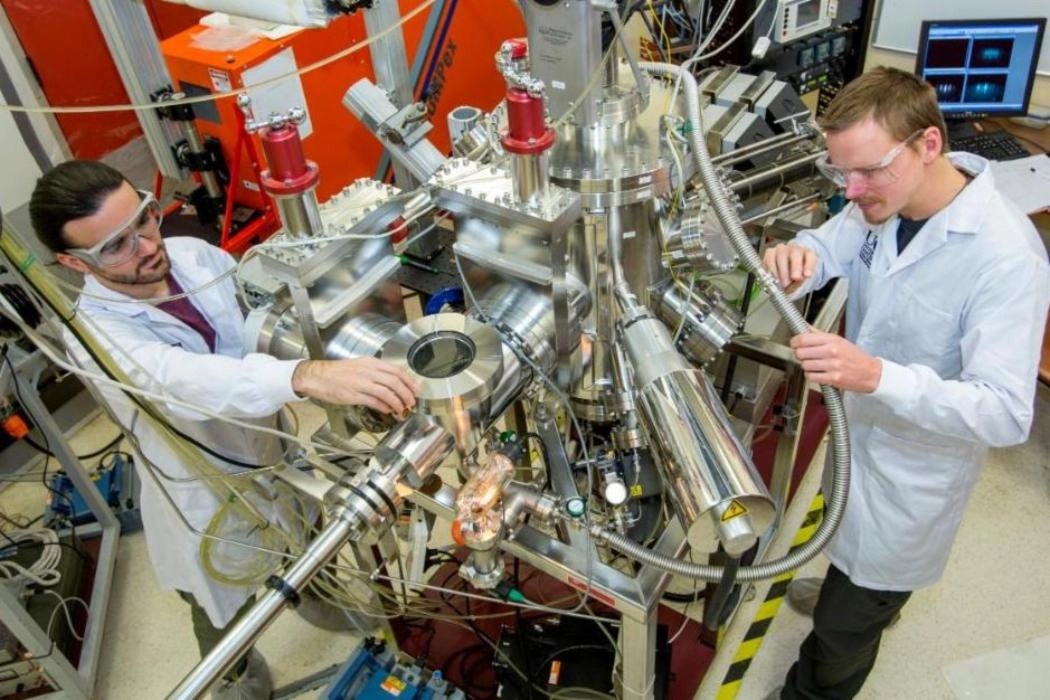
There has been this confusion beclouding the minds of most people who have intention of applying for a Masters degree programme. Upon selection of their choice of postgraduate school, they go through all available courses and BOOM! they see terms like Academic Masters and Professional Masters programme and the question comes to mind, What is the difference between Academic Masters and Professional Masters degree programe?
There are many striking differences between academic and professional master programme or non-academic masters as some would classify it. We shall differentiate them in a table below so you can fully identify the difference between an academic masters and a professional masters degree.
First we shall start with the definition of academic masters degree and professional masters degree programmes after which we shall give at least 20 differences between them respectively.
What is Professional Master Degree?
The term PROFESSIONAL means being a master at what you do. It is tagged master’s degrees’, simply because are you are a master in your chosen field of study. Another reason it is called professional Master degree is because the programmes is strictly career driven. Students are developed in a particular profession and are seen as professionals in the field hence armed with specialized skills and knowledge to help build the organization.
What is Academic Masters Degree?
Academic Masters programme is designed for continuity, it is a continuation of the course you studied at your undergraduate level but this time in a more advanced and specialized stage in a taught and research format. Examples of Academic Masters are Master of Arts (MA), Master of Science (MSc), Master of Research (MRes) and Master of Philosophy (MPhil).
Back to the distinguishing features between a professional and an Academic Masters. Upon completion of your postgraduate degree programme in either an M.A. (master of arts) or M.Sc., (Master of Science) a certificate is awarded in the traditional arts, sciences, and social and management science courses.
Also, an M.S. (Engr) and M.Sc (Ag) are awarded in fields like Engineering and Agriculture in postgraduate level.Original research, research methodology, and field investigation are emphasized. These programs usually require the completion of between 30 and 60 credit hours and could reasonably be completed in one or two academic years of full-time study. They may lead directly to the doctoral level.
Many master’s programs offer a thesis and a non-thesis option. The degree is the same in both cases, but the academic requirements are slightly different. Students in non-thesis programs usually take more coursework in place of researching and writing a thesis, and they take a written comprehensive examination after all coursework is completed. Students in degree programs that include a thesis component generally take a comprehensive examination that is an oral exam covering both coursework and their thesis.
DIFFERENCES BETWEEN ACADEMIC AND PROFESSIONAL MASTERS PROGRAMMES
| ACADEMIC MASTERS | PROFESSIONAL MASTERS |
| While the Academic Masters needs more than a pass to be able to qualify for the programme. | These degree programs are designed to lead the student from the first degree to a particular profession |
| Academic masters allows continuation of academic pursuit. | Most professional masters are usually par-time. |
| Academic masters are less cheaper than the professional masters | Such master’s degrees are often designated by specific descriptive titles, such as master of business administration (M.B.A.), master of social work (M.S.W.), master of education (M.Ed.), or master of fine arts (M.F.A.). Other subjects of professional master’s programs include journalism, international relations |
| While Academic masters can be used for lecturing. | Professional masters can not be used for lecturing. |
| For Academic Masters programme, the duration is shorter. It takes 12 months to complete for full time postgraduate programmes while part time is 24 months. | Professional masters programme duration is longer. Full time professional programme duration is 18 months. While part time is 24 months. |
Professional Master’s degrees are usually classified by distinctive titles, for example, Master of Social Work (M.S.W.), Master of Business Administration (M.B.A.), Master of education (M.Ed.), or Master of Fine Arts (M.F.A.), others professional master’s programs include international relations, architecture, urban planning and journalism. Professional master’s degrees are oriented more toward direct application of knowledge than toward original research. Towards the end of this article, we shall give a list of Academic masters programme and non-academic masters programme for your understanding.
Professional masters programme do not always require that the bachelor’s degree be in a specific field, but they may recommend a certain amount of prior study or coursework in the subject area
While Academic masters require you meet certain grades for example 2.7GPA and above, professional masters might require less Gross Point Average from any field though this also depends on the course.
Professional degree programmes often require shorter duration period because they usually do not offer a thesis option but this isn’t the case for Academic masters where Thesis (long essay or dissertation involving personal research, written by a candidate for a postgraduate programme)
Features That Distinguishes Between PROFESSIONAL MASTERS from ACADEMIC MASTERS Programmes
Professional master’s degrees are often classified by distinctive titles, for example, Master of education (M.Ed.), Master of Business Administration (M.B.A.), Master of Social Work (M.S.W.), or master of fine arts (M.F.A.). Other subjects of professional master’s programs include journalism, international relations, architecture, and urban planning. Professional master’s degrees are oriented more toward direct application of knowledge than toward original research..
They do not always require that the bachelor’s degree be in a specific field, but they may recommend a certain amount of prior study or coursework in the subject area
Another striking difference between Academic Masters and Profession masters programme is that with just a pass you can go for a professional masters not minding the course you are applying for. while Academic Masters require some specific requirements like having a specific grade e.g. 3.0 to 3.5 GPA as a requirement for application.
While academic masters is broader in the scope of work because it focuses majorly on research work on its field of study with the aim of lecturing in higher institution when the need arises, Professional masters programmes are designed to train postgraduate students in specialized skills and equipping them with the fundamental knowledge needed in policy making and designs that would be implemented in the world of business.
List of Academic Masters and Professional Masters Programmes
Specialized and professional master’s degrees
Master of Business Administration (MBA)
This is one of the most popular and expensive professional master programme. The Master of Business Administration (MBA) has been structured to give students the requisite fundamental knowledge and skills required for career development in business and management positions.
Master of Library Science (MLS, MLIS, MSLS)
This programme is categorized under academic and professional masters. The Master of Library Science structured to offer both academic and professional skills and knowledge to students, especially for the workplace.
Master of Public Administration (MPA)
The Master of Public Administration is the most similar to the MBA programme, the only difference between the MPA and MBA programme is that while MPA focuses on the public sector, MBA is private sector oriented.
MPA is a wide programme, there are other options from which you could specialize in and these include;
- Master of Public Policy (MPP)
- Master of Public Affairs (MPA)
- Master of Urban Planning (MUP)
- Master of International Affairs (MIA).
Master of Public Health (MPH)
Just like MLS, MLIS and MSLS, Master of Public Health is both professionally and academically inclined. The course uses an interdisciplinary application in fields similar to public health. Postgraduate students in this field ate trained on the fundamental knowledge required to monitor, diagnose and regulate the health concerns of societies via public policies. Some countries accepts persons with an MPH certificate for community diagnosis while other countries stick strictly with Medical doctors.
Master of Social Work (MSW)
The Master of Social Work degree programme is designed to prepare PG students for careers in the field of social work and developing themselves in a bid to improving the quality of life for the community they serve.
Master of Laws (LLM)
The Master of Laws can be undertaken by law degree graduates. This programme gives students the opportunity to needed to become a law expert.
Master of Arts in Liberal Studies (MA, MALS, MLA/ALM, MLS)
This is an interdisciplinary programme structured to train students rigorously in the field of liberal arts.
Master of Fine Arts (MFA)
Are you interested in creative writing, graphic design, photography, film-making, theatre art and painting? then this professional master degree programme is designed for you. You will be taught both theoritical and masters
Master of Music (MM/MMus)
This masters programme is not so common yet it is unique. it prepares student for special training on music composition, conducting as well as performances. The Master of music programme is designed to teach student the art of music as well as become a master in the field.
Master of Education (MEd, MSEd, MIT, MAEd, MAT)
The Master of Education degree programme prepares you for a career in the field of education. With some specialty in the area of curriculum, Instruction, special education, counselling and administration.
Master of Engineering (MEng)
The Master of Engineering degree could both be classified as an academic master or professional master programme. As an Academic Master focus is placed on engineering theories and practice while as a professional master programme, it is designed to help student with fundamental skills and knowledge needed at the work place especially in the field of Engineering.
Master of Architecture (M.Arch)
This masters programme assesses students through practical internships, final examinations and/or a thesis or final project in order to receive a license. As M.Arch degrees vary in kind, you may find different names for different types of programs. Students are required to produce coursework in subjects such as design, building science, structural engineering, architectural history and theory and professional practice.
For now, this is how far we can go in educating you on the differences between academic master and professional master which is also sometimes referred to non-academic master so if you have any questions please reach out to us through the comment section below and we shall respond accordingly.


